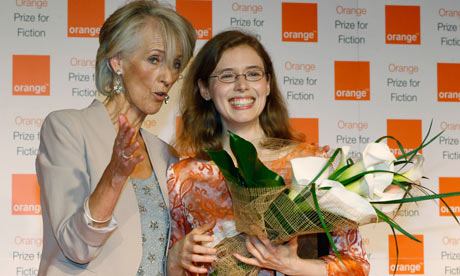
Greek myths have a universal appeal: we half-remember them, and want to hear them again (though it can't have hurt to have a classicist on the Orange prize judging panel). The past few years have been rich in new riffs on Homer, not least Zachary Mason's daring, experimental Lost Books of the Odyssey, Dan Simmons's science-fiction epics, in which the Iliad is replayed on 30th-century Mars, and Alice Oswald's pared-down poem Memorial, which counts the human cost of the Trojan war through the stories of those who fell.
In her polished debut novel The Song of Achilles, 10 years in the writing, Madeline Miller has taken a more faithful approach to the material. She moves from the fraught meeting of kings and heroes to decide who should marry the beautiful Helen to the massing of the Greeks to attack Troy and seize her back when she is snatched, continuing through the long siege and beyond, to the deaths of Hector and Achilles, the flowers of their two armies. Miller's twist is to tell the epic story of Achilles – a "godling" born of a nymph, fated for military glory and early death – in a lyric mode, from the perspective of that classic novelistic figure, the sensitive bystander.
Her narrator Patroclus, she has said, sees the world "more like Sappho and Catullus than Homer"; he is a lover, not a fighter, swept up in the war because he is inseparable from Achilles. The close relationship between Achilles and Patroclus has been a subject of gossip for centuries. Miller configures it as a swooning schoolboy romance – all soft-focus wandering hands and divine disapproval from Achilles' mother – that develops into a deep adult relationship. There's a danger of anachronism here - it feels like a very modern civil partnership – as there is too with the boys' habit of saving slave girls, spoils of war, from ravishment by their fellow soldiers by claiming them chastely for themselves, and promising earnestly never to kill unarmed men. If the past is a foreign country, I wished that the central characters – tragic, semi-divine fighting machine Achilles, especially – had been made a little stranger.
But undeniably, the lovers' sympathetic immediacy is part of the novel's wide appeal. Where Miller excels is in the fabric of the ancient world she creates – the food, the armour, the complex social setups of obligation and command – and the way that the supernatural, in the shape of divine winds or furious nymphs, is woven into everyday life: extraordinary, yet unquestioned. When Achilles and Patroclus lean against the fresh new wood of the ship built to take them to Troy, looking out towards the unknown horizon, the old stories feel fresh and new to the reader too.

